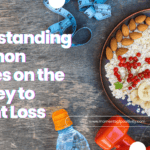Share this
Irritable bowel syndrome (IBS) is a common condition affecting the digestive system that can cause symptoms like abdominal pain, bloating, diarrhea, and constipation. Making careful dietary changes is one of the best ways to help manage IBS and prevent uncomfortable flare-ups. With a bit of trial and error, you can figure out which foods tend to trigger your symptoms, and which provide relief. This allows you to take control of your IBS through your diet.
Understanding IBS Triggers
People with IBS often find that certain foods or drinks can bring on symptoms. Triggers vary from person to person, but common culprits include dairy, wheat, alcohol, caffeine, beans, gas-producing vegetables, and artificial sweeteners. Identifying your triggers is key to avoiding an IBS flare up.
Keep a detailed food and symptom diary for a few weeks. Note everything you eat and drink along with any digestive issues. Look for patterns between your diet and IBS symptoms. Once you spot likely triggers, eliminate them from your diet one at a time to see if your symptoms improve. Reintroducing them can confirm if they do indeed exacerbate your IBS.
Following a Low-FODMAP Diet
A low-FODMAP diet is often recommended for managing IBS. FODMAPs stands for fermentable oligosaccharides, disaccharides, monosaccharides, and polyols – these are short-chain carbohydrates that can be poorly absorbed by some people. Bacteria in the gut then ferment them, producing gas and drawing fluid into the intestines, which leads to digestive issues.
Studies show that a low-FODMAP diet can significantly reduce symptoms like abdominal pain, bloating, constipation, and diarrhea in people with IBS. Foods to avoid include wheat, onions, garlic, beans, milk, apples, mangoes and honey. Under guidance from a dietitian, you can systematically eliminate high-FODMAP foods for 4-8 weeks. You may then be able to gradually reintroduce certain foods while staying clear of those that cause problems for you.
Soothing Foods and Drinks
As well as avoiding triggers, focus on incorporating foods into your diet that can actively soothe digestive troubles. Examples include oatmeal, rice, bananas, eggs, root vegetables, lean poultry, fish and chamomile tea for IBS. Stay hydrated by drinking plenty of water, herbal teas and broth-based soups.
Be Patient with Dietary Changes
It takes time to identify IBS triggers and make lasting dietary changes. Don’t attempt to overhaul your diet overnight. Make adjustments and introductions gradually and give each change at least a few weeks before assessing its effects. Keeping a food diary can help you stay on track. Be patient – it can take months to settle on an optimal diet to control symptoms through careful elimination and reintroduction of certain foods.
Consult a Dietician
A registered dietician can provide personalized advice on managing IBS through your diet. They can help identify appropriate dietary restrictions based on your symptoms and triggers. A dietician can also guide you through challenges like a low-FODMAP diet or developing a customized diet plan for IBS. If your usual diet is lacking in any nutrients due to restrictions, they may be able to suggest substitutions or supplements. Professional dietary advice gives you the best chance of successfully controlling IBS.
Develop a Long-Term Management Plan
Dietary and lifestyle changes require a commitment to be effective long-term for IBS. Work closely with your doctor and dietician to develop an individualized management plan. Keep adjusting this as you learn more about what works best for you. With time, the right dietary and lifestyle choices should help you successfully minimize IBS symptoms and feel healthier.



